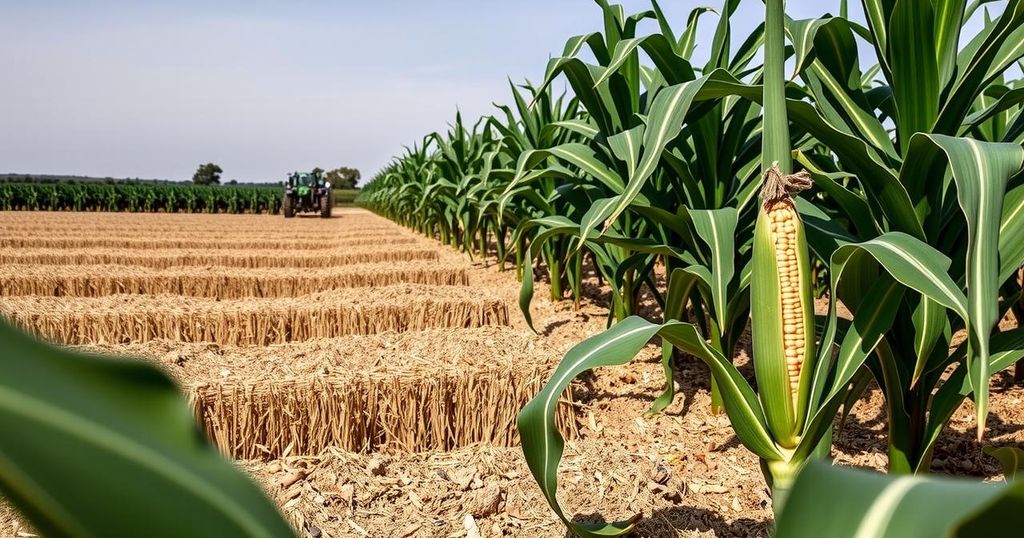Impact of Argentina’s Dry Weather on Soybean and Corn Prices
Argentina’s dry weather has caused soybean and corn prices to rise significantly on the CBOT, with soybeans up 1.29% and corn up 0.78%. Concurrently, Kazakhstan has increased its grain exports, while French farmers protest against local competition and policies. These events reflect the ongoing impact of climate change on global agricultural markets.
In recent developments, soybean and corn futures on the Chicago Board of Trade (CBOT) have risen as a result of persistent dry weather in Argentina, which raises concerns regarding crop yields for the 2024/25 growing season. Specifically, soybean prices increased by 1.29%, reaching $10.04 per bushel, while corn prices rose by 0.78%, settling at $4.54 per bushel. This uptick in prices occurs despite some recent beneficial rainfall. Concurrently, wheat futures also saw a minor increase of 0.8% to $5.33 per bushel as global supply constraints related to weather impact the market. Additionally, Kazakhstan has capitalized on the situation, exporting 3.7 million metric tons of new-harvest grain from September to December, a notable 54% rise from the previous year’s figures. Conversely, French farmers have voiced their discontent through protests, citing unfavorable competition and restrictive government policies.
Argentina’s agriculture sector is presently experiencing extreme dry weather conditions, which have significantly affected crop production and yield predictions. These climatic challenges are reflective of broader global agricultural patterns influenced by climate change. As major agricultural producers navigate these conditions, global trade dynamics are evolving. Kazakhstan, for instance, has seized market opportunities, significantly increasing its grain exports during this period of uncertainty in Argentina. The interplay of these factors impacts global grain prices and farmer livelihoods, highlighting the importance of monitoring weather patterns and market responses in agricultural trade.
In summary, the dry weather in Argentina has adversely impacted soybean and corn prices, lifting futures on the CBOT as yield concerns grow. Kazakhstan’s surge in grain exports illustrates the shifting dynamics in the global agricultural market amid these weather-related challenges. As countries adapt to changing climatic conditions, the landscape of international trade and agriculture is poised for continual evolution, underscoring the necessity for stakeholders to remain vigilant in these volatile circumstances.
Original Source: finimize.com




Post Comment